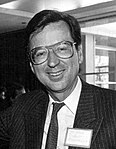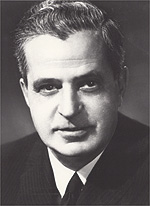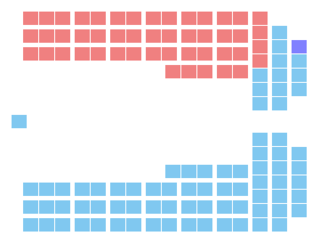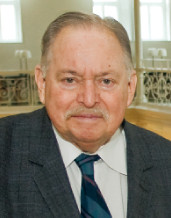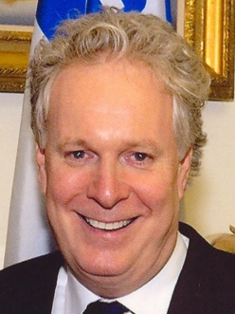| |||||||||||||||||||||||||||||||||||||||||||||||||||||||||||||||||||||||
110 seats in the 30th National Assembly of Quebec 56 seats were needed for a majority | |||||||||||||||||||||||||||||||||||||||||||||||||||||||||||||||||||||||
|---|---|---|---|---|---|---|---|---|---|---|---|---|---|---|---|---|---|---|---|---|---|---|---|---|---|---|---|---|---|---|---|---|---|---|---|---|---|---|---|---|---|---|---|---|---|---|---|---|---|---|---|---|---|---|---|---|---|---|---|---|---|---|---|---|---|---|---|---|---|---|---|
| Turnout | 80.39% | ||||||||||||||||||||||||||||||||||||||||||||||||||||||||||||||||||||||
| |||||||||||||||||||||||||||||||||||||||||||||||||||||||||||||||||||||||
| |||||||||||||||||||||||||||||||||||||||||||||||||||||||||||||||||||||||
The Quebec general election of 1973 was held on October 29, 1973 to elect members to National Assembly of Quebec, Canada. The incumbent Quebec Liberal Party, led by Premier Robert Bourassa, won re-election, defeating the Parti Québécois , led by René Lévesque, and the Union Nationale (UN).

The National Assembly of Quebec is the legislative body of the province of Quebec in Canada. Legislators are called MNAs. The Queen in Right of Quebec, represented by the Lieutenant Governor of Quebec and the National Assembly compose the Legislature of Quebec, which operates in a fashion similar to those of other Westminster-style parliamentary systems.
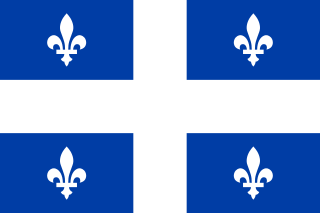
Quebec is one of the thirteen provinces and territories of Canada. It is bordered to the west by the province of Ontario and the bodies of water James Bay and Hudson Bay; to the north by Hudson Strait and Ungava Bay; to the east by the Gulf of Saint Lawrence and the province of Newfoundland and Labrador; and to the south by the province of New Brunswick and the U.S. states of Maine, New Hampshire, Vermont, and New York. It also shares maritime borders with Nunavut, Prince Edward Island, and Nova Scotia. Quebec is Canada's largest province by area and its second-largest administrative division; only the territory of Nunavut is larger. It is historically and politically considered to be part of Central Canada.

The Quebec Liberal Party is a federalist provincial political party in Quebec, Canada. It has been independent of the federal Liberal Party of Canada since 1955.
Contents
The Liberals won one of the largest majority governments in the province's history, with 102 seats. In the process, they reduced the opposition to just eight seats (six PQ, two créditistes) in total. The Parti Québécois held its own, losing only one seat, and despite having fewer seats, became the official Opposition, although PQ leader René Lévesque failed to win a seat in the Assembly.
The Ralliement créditiste du Québec was a provincial political party in Quebec, Canada that operated from 1970 to 1978. It promoted social credit theories of monetary reform, and acted as an outlet for the expression of rural discontent. It was a successor to an earlier social credit party in Quebec, the Union des électeurs which ran candidates in the 1940s.

René Lévesque was a reporter, a minister of the government of Quebec (1960–1966), the founder of the Parti Québécois political party and the 23rd Premier of Quebec. He was the first Quebec political leader since Confederation to attempt, through a referendum, to negotiate the political independence of Quebec.
The Union Nationale, which had held power until the previous 1970 general election, was wiped off the electoral map, winning no seats. However, UN candidate Maurice Bellemare later won a seat in a 1974 by-election.
Maurice Bellemare, was a politician in Quebec, Canada. He was known as Le Vieux Lion de la Politique Québécoise because of his colourful style and his many years of public office. Bellemare was one of the last survivors of the Union Nationale party.
By-elections, also spelled bye-elections, are used to fill elected offices that have become vacant between general elections.
The popular vote was not as lopsided as the seat count would indicate, even though the Liberals won 54 percent of the popular vote. The Parti Québécois, for instance, won 30% of the popular vote, a significant improvement over their previous showing of 23% in the 1970 election. However, their support was spread out across the entire province, and was not concentrated in enough areas to translate into more seats. Quebec elections have historically produced significant disparities in seat counts.
